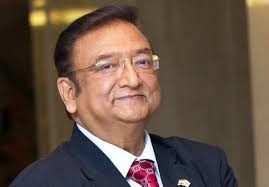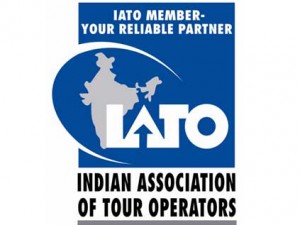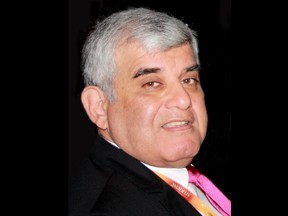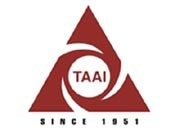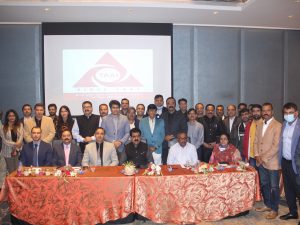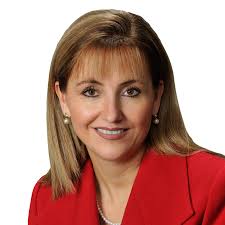PP Khanna, President, ADTOI, said, “The tourism industry is really disappointed, especially after seeing over 30% unemployment. While the budget has proposals on railways, roads and ports, it is surprising how without any direct allocation of funds to MOT or state tourism boards, we would be able to follow the slogans like, Dekho Apna Desh, Incredible India and Ek Bharat , Shrestha Bharat? The industry was to be recognised post-COVID, which has not been done.”
Read More »Empowering for economy, but disappointing for tourism
Jyoti Mayal, President, TAAI, has commented, “Overall, the 2021 Budget is empowering people for greater economic freedom, sound infrastructure, metro, railways, airports, and highways. However, we are very disappointed that as travel and tourism has not got anything specifically, despite being a strong GDP contributor, as well as having a huge value chain going across all levels, which is going to be affected. We might see many shops closing down and people going out of business.” She added, “We expected much more than what was announced. However, we believe the Budget 2021 has focused more on spendings to enable economic growth through infrastructure roads and financial remedies. Travel, tourism and hospitality was completely neglected. As we await the fineprint, the direct taxes are not clear. “Further Dis-investment in AirIndia is still on the rocks and is expected to be completed this year. Clarity on the same is eagerly is awaited by us, the main stakeholder partner hereto. For Rail packages over the years this shall be a advantage since the Plan is to create a ‘future ready’ Railway system by 2030. Passenger Logistics shall have advantage in the circuits and infrastructure. “In Tourism we shall be able to attract for foreign tourist and give more opportunities to travellers. For passenger convenience and safety, the following measures are proposed—We will introduce the aesthetically designed Vista Dome LHB coach on tourist routes to give a better travel experience to passengers. The safety measures undertaken in the past few years have borne results. To further strengthen this effort, high density network and highly utilized network routes of Indian railways will be provided with an indigenously developed automatic train protection system that eliminates train …
Read More »An opportunity lost by Govt to revive tourism
Subhash Goyal, Secretary General, FAITH, has said that the tourism industry is totally disappointed from this Union Budget. “We had many expectations and it was a great opportunity lost for the government to revive this sector and save 30-40 million jobs which are at stake. Indirectly they have talked about increasing connectivity with road and railways infrastructure and ports. The 35,000 crores for vaccine and medical infrastructure enhancement could indirectly help medical tourism. Aim towards transparency in taxation is also good.”
Read More »IATO releases list of contenders for its election on March 6, 2021
IATO has finalised the list of contenders for the forthcoming election of the association on March 6. The contenders are Lally Mathews and Rajiv Mehra for President, EM Najeeb and Sarab Jit Singh for Senior VP, Lajpat Rai and Ravi Gosain for VP, Rajesh Mudgill and Rajnish Kaistha for Honorary Secretary, and Sunil Mishra and Viney Tyagi for Honorary Treasurer.
Read More »Not one suggestion has been looked into or considered in Budget: TAFI
Pradeep Lulla, Acting President, Travel Agents Federation of India (TAFI) shared his comments on the Budget and says, “This year’s Budget is very disappointing, specially for the tourism sector. We had collectively put across many suggestions to the Ministry of Tourism. Unfortunately, not one suggestion has been looked into or considered. The fiscal deficit which is 9.5 is quite large and some sort of allocation to tourism should have been given.”
Read More »Budget has completely and fully chosen to ignore us: FHRAI
Expressing his disappointment in the Union Budget, Gurbaxish Singh Kohli, Vice President, Federation of Hotel & Restaurant Association of India (FHRAI), says, “The Union Budget 2021 has disappointed the hospitality industry. The industry has been bleeding, and the FHRAI has brought it to government’s notice through several representations time and again. Our pre-Budget memorandum to the Hon’ble Finance Minister included some priority reforms to stabilise the industry such as Review of the Kamath Committee recommendations, Classifying Hospitality under the RBI Infrastructure lending norm criteria, Industry status to hotels, restaurants and resorts across the country, include hospitality and tourism in the concurrent list, MAT waiver for a period of three years, IGST billing to hotels for corporate and MICE bookings. The hospitality industry is disheartened and feels demotivated in its darkest hour. With zero foreign exchange earnings and less than 25 per cent of pre-pandemic revenues, the sector is facing an existential crisis. We stand by and come through for the Govt. in its every need, as we did during this pandemic, but we are surprised that the sector could not find even a mention in the FM’s budget. We wish our government would study what other countries have done to ensure tourism, the worst-hit sector, is kept alive. It has yet again completely and fully chosen to ignore us.”
Read More »Need uniform GST, ease of doing business from Budget: TAAI
Travel Agents Association of India (TAAI) hopes the government will consider its suggestions for good governance and ease of doing business for the travel trade. Sharing her expectations on Budget, Jyoti Mayal, President of TAAI, says, “We believe the Budget 2021 should be focused more on spendings to enable economic growth, what better area to spend in than tourism to generate more cash flow and earnings to enable enhancement of infrastructure.” She adds, “We have already appealed for have a uniform GST across India whereby input tax credits can be taken for services utilised across the country. The GST for tour operators should be at 1.8% with full setoff, being 18% on an average margin of 10%. Interstate credit of GST are not available to travel agents and tour operators on IGST and the same should be considered at par which shall not only benefit the corporates but the consumers are large. The similar being with airlines on the point of departure.” We are expecting the FM to ensure LTC benefits not utilised this year due to the pandemic should be permitted to be carried forward in the coming 2 years. Further to boost the economy all expenses made for travel, tourism, MiCE, adventure, domestic and religious travel, by the tax payer should be fully exempt from income tax for the next 2 years, states Mayal. The FM should also ensure 10% SIES credit to be adjusted completely under income tax. To ensure growth in tourism and all incomes from foreign exchange earnings should be given a tax holiday for a period of 2 years. TCS too to should be rescinded as it serve no purpose of tax collect and …
Read More »Second edition of IATO’s wellness webinar today at 11:30am
IATO and TravTalk will be organising the second edition of the webinar on ‘Redesigning Itineraries: Ayurveda, Meditation and Spirituality’ today at 11:30am. The speakers will be Guru Yogi Shivan from Indimasi and Dr. Shiney Linu, Ayurveda Specialist at Kairali Ayurvedic Group. To register email: jaspreet.kaur@ddppl.com or call +91 9650196532.
Read More »India Tourism meets TAAI MP&CG Chapter members in Indore
Venkatesan D, Regional Director of Ministry of Tourism, Govt. of India recently visited Indore to interact with more than 50 members of TAAI’s MP & CG Chapter led by Hemendra Singh Jadon, Chapter Chairman. The discussion was around the importance of promoting India, new products in MP, and new strategies for selling including using more and more social media to showcase experiences and destinations, as well as involving social influencers.
Read More »100 million+ tourism jobs could be recovered in 2021: WTTC
According to WTTC, more than 100 million jobs could return to the global tourism sector during 2021, as the world recovers from the crippling pandemic. “We are looking forward to a strong summer of travel, thanks to a combination of mask wearing, the global vaccination roll-out and testing on departure,” says Gloria Guevara, President & CEO, WTTC.
Read More » Tourism Breaking News
Tourism Breaking News


